Altars
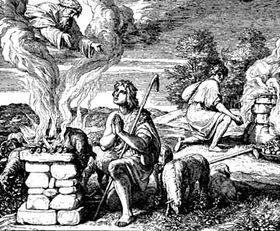
According to Wikipedia "An altar is any structure upon which offerings such as sacrifices are made for religious purposes."
More about the Altars of Clay and Stone. Read En Español.
Altars and Sacrifice
Because religion or the ideas associated with religion have a deep and primal connection in our minds and therefore our emotions few people can face the challenge of exposing the sacred delusions of ancient or modern religion in any form. From the ancient Levites to Modern Christians men have been lead away from the truth by sophists and liars.
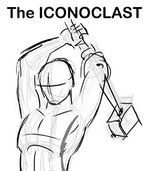
We must be willing to ask not only hard questions but the right questions to get to the core of our false perception of religion.
Tackling the sacred cows of deeply held religious ideologies will require the relentless use of the biggest truth hammer you can find.
But still people themselves will either cling to what they have imagined to be true, crucify and demonize the messenger, or allow their eyes to be opened in humble recognition that we may have it all wrong.
Recognizing our own error and being willing to turn around and take steps to alter the course of our lives in at least simple ways based on humility, love, and forgiveness is essential to knowing the whole truth and providing for it.
We must be willing to look deep into the subject and ourselves. We must be willing to see the truth about ourselves before we will see the truth about the religions of society and in history.
Undoing the Lie
A humble and courageous look at the Sophistry of modern and even ancient language is essential to discovering the truth.
The first question might be what do we mean when we say Religion, or Pure Religion. One might think there are hundreds of different religions in the world today and if you depend on superficial appearance and form as your criteria certainly you can make an assumption to justify that conclusion.
If you focus on the purpose and means of obtaining those religious goals there are only two types of religion.
Certainly there is something we may call False religion but that is opinion driven. Once we accept the original meaning here is Private religion and also Public religion but what do we mean when we say or think Our Religion?
From an unbiased detailed study of the history of religion there is clear evidence that that at least one type or teaching concerning religion is regularly hijacked by the other type. One of the most common tools used to do this is to change the definition of religion so as to unmoor the purpose from what we may call the purpose or defining characteristic or character of a religious idea and practice.
Altars of old
In the Old Testament there were at least two types of altars mentioned as metaphors describing the structure of their society.
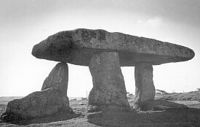
Each member or family of a free assembly of the people is an altar of earth.
The term altar of earth is called an altar of adamah. Adamah is not only dirt but is also man and all the sons of Adam.
The Altars of earth are simply living groups of men and not dead piles of dirt.
The same is true of "altars of stone".
Could a gathering of stones or an altar of stones simply be a gathering of friends?
These altars of earth and stone were meant to be a part of systems of social welfare that operated through voluntary means and mutual love through charity which was different than other altars which used force.
Are the congregations of ministers altars of living stone?
Both earth and stone altars were symbols for a way to operate together in a Network of charity and Freewill offerings so that a nation of believers might remain a peculiar and free people.
All the symbols attached to them and the symbols surrounding them make for an opportunity to hijack the purpose of caring for one another by love and turn it into a system of mind control through a promise of justification, pride, and delusion.
The real purpose of the religion of God is that we actively spend our lives learning to be free souls who are bound together by natural love for one another alone.
God sees the heart and mind of mankind, but the world often requires something more tangible as a evidence in witness.
Practical religion
Moses and Jesus were in agreement. What were they doing and can we do that today?
His Holy Church offers a system for the edification and protection of the free Church and congregation which may assist in the maintenance and nurturing of a free people under God.
A congregation of record seeking other congregations and coming together in a network of people seeking the wholeness and holiness of a righteous government need to manifest that oneness with Christ and the Father both in Spirit and in truth so that may live in the world but not of it.
The Two Types of Altars
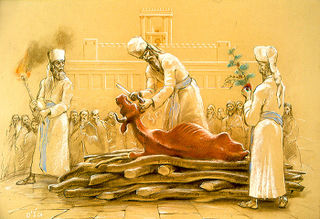
Excerpt from article: The Altars
In the Church in general there are two types of altars, clay and stone.
But in the world the division is different. Understanding that living altars were used in systems of Corban and were a way to provide welfare for the people by the sacrifices of the people and at the same time that the definition of religion can be defined as how you fulfill your duty to your fellowman or as the Bible defines it how you care for the needy of your society unspotted by the World then it becomes easier to understand these terms produce two types of religious altars mentioned just as there are two Welfare_types.
One Welfare type is based on freewill offerings of the people motivated out of love, honor and compassion and the other is based on force and covetousness. The latter depends on Benefactors who Exercises authority one over the other and brings you into bondage, makes merchandise of you, and the former sets you free because you are willing to set your neighbor free from your own greed and wantonness. One system blesses your children and the other curses your children through covetous practices.
These terms are metaphors for a system by which men may remain free souls under God the Father in Heaven with no other gods before him.
Hebrew Altars
The Hebrew word for altar is mizbeach. It is a four letter word Mem Zayin Beit Chet (מזבח) from the three letter root word meaning to sacrifice or offer. Zabach is composed of the three letters Zayin (ז), Beit (ב), and Chet (ח). If you add the letter Mem (מ) you add the idea of flow to the idea of sacrifice. The sacrifices of the people flowed across the altars of Israel just as the sacrifices flowed through the temples of the Imperial Cult of Rome.
The Hebrew letter Zayin (ז) can mean a precious useful tool or a thing of value. While the letter Beit (ב) means God’s righteous purpose or house.
The Hebrew letter Chet (ח) is said to mean to live and to give life, and even thanksgiving.[1]
With the added letter Mem (מ) symbolizing a fountain or flowing Mizbeach (מזבח) completes the ideas of value going to the house of God by freewill sacrifices in thanksgiving.
Many will have difficulty in accepting the meaning of these letters and recognizing the unmooring of the metaphor of the altars. God has never desired mindless rituals and the greatest obstacle to accepting the truth of our apostasy is our pride which keeps us from seeing how completely we have been deceived.
The great distinction between the righteous altars or temples of God and those of the pagan world is that the former is a freewill offering while the latter is often forced. Moses, John the Baptist, Jesus the Christ, and the early Church all advocated and preached freewill offerings through love of neighbor. The governments of the world and the Modern Christians have chosen to go the way of forced contributions for Social Security, opposed by Christ and the prophets, applying to Caesar with an appetite for benefits at the expense of their neighbor. What they image to be for their welfare is actually a snare. Their covetous practices steadily degenerate the whole of society as they become addicted to benefits provided at the expense of others through the rule of violence.[2]
The Hebrew word for earth when talking about altars of earth is "adamah". We are all sons of Adam. Every assembly of man which gathers in charity or what was called freewill offerings is an altar of earth and those men can seek to be a temple of the Holy Spirit. Each man may freely play his part in the Kingdom of God by being a conduit for the sacrifices of his family in the practice of "Pure Religion".
"Pure religion and undefiled before God and the Father is this, To visit the fatherless and widows in their affliction, [and] to keep himself unspotted from the world." (James 1:27)
The Elder of each family chooses how his family is to serve his congregation and the whole community.
The lively stone altars are also men. The living ministers of the Church chosen by men, and ordained of God are the living altars of stone of the kingdom. They are titular leaders and benefactors who do not exercise authority over the contributions of the people but minister their freewill offerings for the good of those they serve.
The church is an alternative government form based on "the perfect law of liberty" composed of families in congregations, and ordained ministers who are servants of servants facilitating faith, hope, and charity that sets men free. To find out more join the Living Network.
It is the mission of His Holy Church to teach the ways of Christ and document the boundaries of the Church, congregations, and the families as a witness of the the world of the Kingdom of God at hand. From HHC
HHC is dedicated to the Weightier matters of the law, judgment, mercy, and faith which include caring for the needs of our neighbors and the widows and orphans of our society through Pure Religion in matters of health, education, and welfare. We are NOT to provide for the needy of society through the Covetous Practices and the men who call themselves benefactors but who exercise authority one over the other like the socialists do.
The Way of Christ was like neither the way of the world of Rome nor the governments of the gentiles who depend on those fathers of the earth through force, fear and fealty who deliver the people back in bondage again like they were in Egypt. Christ's ministers and true Christians do not depend upon systems of social welfare that force the contributions of the people like the corban of the Pharisees which made the word of God to none effect. Many people have been deceived to go the way of Balaam and the Nicolaitan and out of The Way of Christ and have become workers of iniquity.
The Christian conflict with Rome in the first century Church appointed by Christ was because they would not apply to the fathers of the earth for their free bread but instead relied upon a voluntary network providing a daily ministration to the needy of society through Faith, Hope, and Charity by way of freewill offerings of the people, for the people, and by the people through the perfect law of liberty in Free Assemblies according to the ancient pattern of Tuns or Tens as He commanded.
The modern Christians are in need of repentance.
"Follow me!" —Jesus the Christ.
- One of the most important things to do is to become involved in a network of Charitable Practices. Everyone should want to join a Living Network of Love and Charity.
- If you think you have a calling to be a Minister of God or you might want to dedicate your life to Christ as an Ordained Minister of His Holy Church, contact us to start the process of discipleship and become the benefactors who exercise only love, NOT authority.[3]
Sacred Altars Simplified
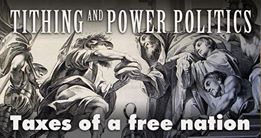
Some people think these ideas of Altars and Sacred Purpose Trusts are too complicated and they do not understand why we need a network. They ask, "Can't we put some money in the collection plate and just love Jesus?"
Was Peter appointing seven men in Acts 6 to help pay the building fund, or the light bill, or his salary, or was it to attend to the Daily ministration of the widows and orphans in Pure Religion?
They were appointing men to collect funds from the people so they could take care of the welfare of the needy of their congregations including widows and orphans in that thing James called Pure Religion without any assistance from the world.
If you do not know what Pure Religion is or what they meant when they used that particular Greek word for world or why the Corban of the Pharisees and of Rome was making the word of God to no effect you might think this all too complicated. The truth is you have to know the terms and phrases of the Bible in the context of history to understand its simple meaning.
When people received the Baptism of Jesus they were eventually called Christians. They were confessing that Jesus was their Christ, their king.[5] Because they made that profession of faith in Jesus as another king they were excluded from the other type of welfare which had been instituted by Herod the Great and the Pharisees, or those of Rome, which were both available at that time.[6]
Public religion, if we use the definition of Religion meaning how we care for the needy of society, is the same as public welfare. The difference was found in the fact that the Pure Religion of Christ and the early Church depended entirely on Freewill offerings through Faith, Hope and Charity and the Perfect law of liberty, while the other system depended upon force.[7] All the systems of the Roman world were using force to collect welfare and provide benefits.
There were lots of welfare systems around in the days of Jesus. We have all heard of the free Bread and circuses. But the Corban of the Pharisees had been making the word of God to none effect and the Qorban of Rome was doing the same.
You see the Pharisees, and also the Romans, had formed networks where they required the people to make contributions to support the welfare system run by their Temples. In their network they had a leader who was the "Pater Patriae" or the father of a country. He collected funds by force and redistributed them as if he was the Benefactor of the people.
Christ forbade this[8] and forbade praying[9]to such fathers of the earth.[10]
So if you read books like Thy Kingdom Comes you will find evidence that the altars were living altars made up of lively Stones which were ministers of the people in a voluntary society Networked together to provide private welfare which was private religion.
By Creating lively Altars and Sacred Purpose Trusts we empower individuals to take back their God-given rights and responsibilities. By doing this we become less dependent upon men who called themselves Benefactors but who exercise authority one over the other in a system of Covetous Practices that make us Merchandise and curse our children.
The stones of Christ's altars are the ministers. Rather than centralizing power over the offerings, individual ministers like cells in your body have a right to decide how to use funds. More importantly, each head of a family has the right to decide what and to whom and how they will donate to the welfare of the people.
In the world each administrator forces contributions according to the power of a hierarchy in government. The people no longer have the power to choose. The first system lends itself to promoting love and sacrifice and the second encourages covetousness, greed, avarice, and sloth which makes the word of God to none effect.
To put it simply:
- The altars of God are made of men of service who receive the contributions of men freely and freely distribute them to the needy of society who seek the righteousness of God and his kingdom on earth as it is in heaven in order to strengthen the poor in the ways of faith.
- The altars of the world are made of men who exercise authority and are under an exercising authority who take and take and take and distribute to a poor in a manner that weakens the poor and encourages immorality and sloth in opposition to the principle of rewarding virtue.
Compare Altars Chart
| Altars of the world | Altars of God |
|---|---|
| Serve those who swear allegiance and fealty | Serve those who seek faith of love |
| People look for entitlements | People look to hope |
| Based on the use of force | Based on the use of charity |
| Forces the Sacrifice of the people | Encourages sacrifice through love |
| Entitles the slothful to the fruits of the diligent | Encourages diligent virtue with assistance and care |
| Administrators of rulers exercise authority | Ministers depend upon freewill offerings |
| Administrators seek power over masses | Ministers seek to empower the individual |
| Motivated by advantage and control | Motivated by love of righteousness[11] |
| Love the gods of the world | Love the God of heaven and their neighbors[12] |
| Table of Deceitful meats and dainties of Kings[13] | Table of the Eucharist or thanks-giving of Christ |
| Makes the word of God to none effect[14] | Makes the word of God at home in your hearts |
| Is a snare and bondage making them merchandise[15] | Sets men free making them children of God |
| Curse children through covetous practices[16] | Blesses children with the knowledge of God and The Way |
| Of the world | In the world |
| Appointed of men who covet you into captivity | Ordained of God to set the captive free |
| Uses legal charity | Uses Fervent charity |
| Bite one another | Learn to care |
| Pagan | Christian |
Read Thy Kingdom Comes and The Free Church Report or join our online and conference call study groups and people will answer your questions.
We recommend that you read these links and decide for yourself whether people have a strong delusion or if one is already here. If you do study this material it is very possible you will begin to see that Christ preached a welfare system based on love called the Church or the way.
Ministers |
Why Minister |
Minister of the world |
Minister of the Church |
Elders |
Deacon |
Priests |
Levites |
Breeches |
Hierarchy |
Altars |
Stones |
Stoning
Daily ministration |
Corban |
Welfare |
Essenes |
Disciples |
Seven men |
Church |
Church legally defined |
Christian |
Churches |
Ministry Burnout |
Religion |
The Blessed Strategy |
Widow |
Tens |
Tithing |
CORE |
COM |
Minister of Record |
Benefactors |
Cain |
Nimrod |
Constantine |
Christian conflict |
Fathers |
Lady Godiva |
Isaac Backus |
Government and Liberty Described |
Monks |
Lost Monks |
Married Monks |
Monasticism |
Modern Monastic life |
Seek |
Votive |
Orders |
Religious Orders |
Rules of St Benedict |
Jesus |
Was Jesus rich |
Mendicant |
Vow of poverty |
Fervent Charity |
Denominations |
Guru theories |
Iconoclast |
Cult |
Bible Index |
First to do List |
If you need help:
- Or want to help others:
Join The Living Network of The Companies of Ten
The Living Network |
Join Local group |
About |
Purpose |
Guidelines |
Network Removal
Contact Minister |
Fractal Network |
Audacity of Hope |
Network Links
Other links
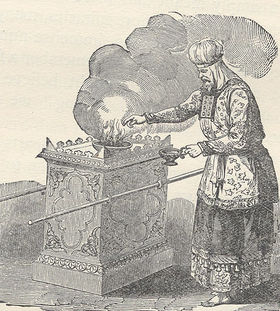
From the book Thy Kingdom Comes, The Altar of Abraham
From the book Thy Kingdom Comes, Joshua’s Altar
From the book Thy Kingdom Comes, Factions at the Altar
Sacrifice
Altars
Stones |
Clay and Stone |
Stones upon |
White stones |
Lively Stones of a Living Altar |
Sophistry |
Leaven |
Breeches |
Stoning |
Altars |
Church legally defined | Sacrifice of fools
Graven images |
Red Heifer | Reserve fund
Corban |
Tithing In Conscience |
Self-Sacrifice |
Pure Religion |
Legal charity |
Public religion |
Worship |
Welfare |
Welfare types |
Daily ministration
Christian conflict |
Benefactors |
Feasts |
Good Samaritan |
Thy first love |
Born again |
New creature
Celebrate |
Temples |
Modern Christians |
The Blessed Strategy
Power To Change |
Peine forte et dure |
Tithing |
Offering |
Korban
Korab |
Minchah
Necek |
Nedabah
Shelem |
Tenuwphah
Teruwmah
Charity |
Freewill offerings |
Corban
Religion |
Pure Religion |
Golden rule |
Altars |
Tens |
Network |
Pentecost
Perspective |
One purse |
Temptations |
Tithe |
Tithing |
Tithing In Conscience |
Tithingman |
Tribute |
Taxation |
Treasury |
Corban |
Charitable Practices |
Covetous Practices |
Fervent Charity |
Gleaners |
FEMA |
Lady Godiva |
Religion |
Pure Religion |
Private welfare |
Fleeing Religion |
False religion |
Public religion |
Our Religion |
Christian conflict |
Corban |
Baptism |
Benefactors |
That Word |
Daily ministration |
Modern Christians |
Diocletianic Persecution |
Christians check list |
gods |
Judge not |
Judge |
Fathers |
Deist |
Damnable heresies |
Factions at the altar |
Pharisees |
Sadducees |
Zealot |
Essenes |
Levites |
Messianic Judaism |
Menahem the Essene |
Sanhedrin |
Altars |
Clay and Stone |
Red Heifer |
Golden calf |
Freewill offerings |
Religion |
Pure Religion |
Public religion |
Christian conflict |
Paganism |
Denominations |
Dispensationalism |
Benefactors |
Corban |
Daily ministration |
Calendars |
Cult |
Imperial Cult of Rome |
Guru theories| |
Covet |
Merchandise |
Mark of God |
Mark of Cain |
Mark of the Beast |
Nature of the Beast
Section 666 |
Benefactors |
Biting one another |
Cry out |
Worship |
Church |
Temples |
Religious Orders |
Priests |
Kings and priests |
Hear |
Bible Index |
Network |
Cult |
Imperial Cult of Rome |
Rome |
Christian conflict |
The Democracy Cult |
Supreme being |
Diocletianic Persecution |
Gods |
Religion |
False religion |
Copy links from TKC
3. The Altar of Abraham of the book Thy Kingdom Comes
- Moses and the Altars of the book Thy Kingdom Comes
http://www.hisholychurch.org/media/books/TKC/TKCc3-1AltarsofClay.php
- The Altar of Sin of the book Thy Kingdom Comes
http://www.hisholychurch.org/media/books/TKC/TKCc3-2Sin.php
- Sacrifice of the book Thy Kingdom Comes
http://www.hisholychurch.org/media/books/TKC/TKCc3-3Sophistry.php
4. Moses, Moses of the book Thy Kingdom Comes
- The Civil State of the book Thy Kingdom Comes
http://www.hisholychurch.org/media/books/TKC/TKCd4-1CivilState.php
- Gods Many of the book Thy Kingdom Comes
http://www.hisholychurch.org/media/books/TKC/TKCd4-2godsmany.php
Footnotes
- ↑ Eucharist, is the Greek word for thanksgiving. Thanksgiving and freewill offerings is essential in the Kingdom of God.
- ↑ "But when a new generation arises and the democracy falls into the hands of the grandchildren of its founders, they have become so accustomed to freedom and equality that they no longer value them, and begin to aim at pre-eminence; and it is chiefly those of ample fortune who fall into this error. 6 So when they begin to lust for power and cannot attain it through themselves or their own good qualities, they ruin their estates, tempting and corrupting the people in every possible way. 7 And hence when by their foolish thirst for reputation they have created among the masses an appetite for gifts and the habit of receiving them, democracy in its turn is abolished and changes into a rule of force and violence. 8 For the people, having grown accustomed to feed at the expense of others and to depend for their livelihood on the property of others, as soon as they find a leader who is enterprising but is excluded from the houses of office by his penury, institute the rule of violence; 9 and now uniting their forces massacre, banish, and plunder, until they degenerate again into perfect savages and find once more a master and monarch" Polybius: The Histories (composed at Rome around 130 BC)Fragments of Book VI, p289
- ↑ Matthew 20:25-26 But Jesus called them unto him, and said, Ye know that the princes of the Gentiles exercise dominion over them, and they that are great exercise authority upon them. But it shall not be so among you: but whosoever will be great among you, let him be your minister;
Mark 10:42-43 But Jesus called them to him, and saith unto them, Ye know that they which are accounted to rule over the Gentiles exercise lordship over them; and their great ones exercise authority upon them. But so shall it not be among you: but whosoever will be great among you, shall be your minister:
Luke 22:25-26 And he said unto them, The kings of the Gentiles exercise lordship over them; and they that exercise authority upon them are called benefactors. But ye shall not be so: but he that is greatest among you, let him be as the younger; and he that is chief, as he that doth serve. - ↑ John 14:15 If ye love me, keep my commandments.
- John 14:23 Jesus answered and said unto him, If a man love me, he will keep my words: and my Father will love him, and we will come unto him, and make our abode with him.
- ↑ Acts 17:7 Whom Jason hath received: and these all do contrary to the decrees of Caesar, saying that there is another king, [one] Jesus.
- ↑ John 9:22 These [words] spake his parents, because they feared the Jews: for the Jews had agreed already, that if any man did confess that he was Christ, he should be put out of the synagogue.
- ↑ Matthew 11:12 And from the days of John the Baptist until now the kingdom of heaven suffereth violence <971>, and the violent take it by force. Luke 16:16 The law and the prophets were until John: since that time the kingdom of God is preached, and every man presseth <971> into it.
This word βιάζω biazo used only in these two places means to "to use force, to apply force...to force, inflict violence on". All other governments were establishing themselves with systems of welfare that bound you, trapped, snared you, made
- Merchandise of you and a surety for debt.
- ↑ Luke 22:25-26 And he said unto them, The kings of the Gentiles exercise lordship over them; and they that exercise authority upon them are called benefactors. But ye shall not be so: but he that is greatest among you, let him be as the younger; and he that is chief, as he that doth serve. For whether is greater, he that sitteth at meat, or he that serveth? is not he that sitteth at meat? but I am among you as he that serveth.
- ↑ Matthew 6:7-13 But when ye pray, use not vain repetitions, as the heathen do: for they think that they shall be heard for their much speaking. Be not ye therefore like unto them: for your Father knoweth what things ye have need of, before ye ask him. After this manner therefore pray ye: Our Father which art in heaven, Hallowed be thy name. Thy kingdom come. Thy will be done in earth, as it is in heaven. Give us this day our daily bread. And forgive us our debts, as we forgive our debtors. And lead us not into temptation, but deliver us from evil: For thine is the kingdom, and the power, and the glory, for ever. Amen.
- ↑ Matthew 23:9 And call no [man] your father upon the earth: for one is your Father, which is in heaven.
- ↑ 1 Timothy 6:11 But thou, O man of God, flee these things; and follow after righteousness, godliness, faith, love, patience, meekness. 2 Timothy 4:8 Henceforth there is laid up for me a crown of righteousness, which the Lord, the righteous judge, shall give me at that day: and not to me only, but unto all them also that love his appearing.
- ↑ Leviticus 19:18 Thou shalt not avenge, nor bear any grudge against the children of thy people, but thou shalt love thy neighbour as thyself: I am the LORD.
- Matthew 19:19 Honour thy father and thy mother: and, Thou shalt love thy neighbour as thyself.
- Matthew 22:39 And the second is like unto it, Thou shalt love thy neighbour as thyself.
- Mark 12:31 And the second is like, namely this, Thou shalt love thy neighbour as thyself. There is none other commandment greater than these... 33 And to love him with all the heart, and with all the understanding, and with all the soul, and with all the strength, and to love his neighbour as himself, is more than all whole burnt offerings and sacrifices.
- Luke 10:27 And he answering said, Thou shalt love the Lord thy God with all thy heart, and with all thy soul, and with all thy strength, and with all thy mind; and thy neighbour as thyself.
- Romans 13:9 For this, Thou shalt not commit adultery, Thou shalt not kill, Thou shalt not steal, Thou shalt not bear false witness, Thou shalt not covet; and if there be any other commandment, it is briefly comprehended in this saying, namely, Thou shalt love thy neighbour as thyself.
- Galatians 5:14 For all the law is fulfilled in one word, even in this; Thou shalt love thy neighbour as thyself.
- James 2:8 If ye fulfil the royal law according to the scripture, Thou shalt love thy neighbour as thyself, ye do well:
- ↑ Proverbs 23:3 Be not desirous of his dainties: for they [are] deceitful meat.
- ↑ Corban
- ↑ Psalms 69:22 Let their table become a snare before them: and that which should have been for their welfare, let it become a trap. Romans 11:9 And David saith, Let their table be made a snare, and a trap, and a stumblingblock, and a recompence unto them: 2 Peter 2:3 ¶ And through covetousness shall they with feigned words make merchandise of you: whose judgment now of a long time lingereth not, and their damnation slumbereth not.
- ↑ 2 Peter 2:14 Having eyes full of adultery, and that cannot cease from sin; beguiling unstable souls: an heart they have exercised with covetous practices; cursed children:
About the author
Subscribe
HELP US at His Holy Church spread the word by SUBSCRIBING to many of our CHANNELS and the Network.
The more subscribers will give us more opportunity to reach out to others and build the network as Christ commanded.
Join the network.
Most important is to become a part of the Living Network which is not dependent upon the internet but seeks to form The bands of a free society.
You can do this by joining the local email group on the network and helping one another in a network of Tens.
His Holy Church - YouTube
https://www.youtube.com/user/hisholychurch
Bitchute channel will often include material that would be censored.
https://www.bitchute.com/channel/o6xa17ZTh2KG/
Rumble Channel gregory144
https://rumble.com/user/gregory144
To read more go to "His Holy Church" (HHC) https://www.hisholychurch.org/
Brother Gregory in the wilderness.
https://www.youtube.com/channel/UCJSw6O7_-vA4dweVpMPEXRA
About the author, Brother Gregory
https://hisholychurch.org/author.php
PreparingU - YouTube
https://www.youtube.com/channel/UC9hTUK8R89ElcXVgUjWoOXQ
Facebook
https://www.facebook.com/HisHolyChurch
Follow on X
https://x.com/HisHolyChurch
X-Space gathering Friday at 6pm PST
https://x.com/GregoryHHC
Join the network
